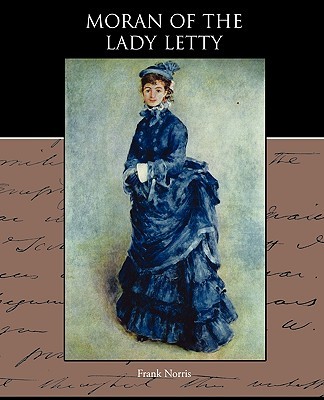
- We will send in 10–14 business days.
- Author: Frank Norris
- Publisher: Book Jungle
- Year: 2010
- Pages: 128
- ISBN-10: 1438594755
- ISBN-13: 9781438594750
- Format: 19.1 x 23.5 x 0.7 cm, minkšti viršeliai
- Language: English
- SAVE -10% with code: EXTRA
Reviews
Description
Frank Norris was a late 19th century American novelist writing in the naturalist genre. His most famous works include McTeague (1899), The Octopus: A California Story (1901), and The Pit (1903). His works show socialistic tendencies and were influenced by Darwin and Huxley. His work often includes depictions of suffering caused by corrupt and greedy turn-of-the-century corporate monopolies. Moran of the Lady Letty is the story of a murder, a battle and a few sudden deaths. An excerpt reads, "This is to be a story of a battle, at least one murder, and several sudden deaths. For that reason it begins with a pink tea and among the mingled odors of many delicate perfumes and the hale, frank smell of Caroline Testout roses. There had been a great number of debutantes "coming out" that season in San Francisco by means of afternoon teas, pink, lavender, and otherwise. This particular tea was intended to celebrate the fact that Josie Herrick had arrived at that time of her life when she was to wear her hair high and her gowns long, and to have a "day" of her own quite distinct from that of her mother. Ross Wilbur presented himself at the Herrick house on Pacific Avenue much too early upon the afternoon of Miss Herrick's tea. As he made, his way up the canvased stairs he was aware of a terrifying array of millinery and a disquieting staccato chatter of feminine voices in the parlors and reception-rooms on either side of the hallway. A single high hat in the room that had been set apart for the men's use confirmed him in his suspicions. "Might have known it would be a hen party till six, anyhow," he muttered, swinging out of his overcoat. "Bet I don't know one girl in twenty down there now--all mamma's friends at this hour, and papa's maiden sisters, and Jo's school-teachers and governesses and music-teachers, and I don't know what all."
EXTRA 10 % discount with code: EXTRA
The promotion ends in 22d.23:12:11
The discount code is valid when purchasing from 10 €. Discounts do not stack.
- Author: Frank Norris
- Publisher: Book Jungle
- Year: 2010
- Pages: 128
- ISBN-10: 1438594755
- ISBN-13: 9781438594750
- Format: 19.1 x 23.5 x 0.7 cm, minkšti viršeliai
- Language: English English
Frank Norris was a late 19th century American novelist writing in the naturalist genre. His most famous works include McTeague (1899), The Octopus: A California Story (1901), and The Pit (1903). His works show socialistic tendencies and were influenced by Darwin and Huxley. His work often includes depictions of suffering caused by corrupt and greedy turn-of-the-century corporate monopolies. Moran of the Lady Letty is the story of a murder, a battle and a few sudden deaths. An excerpt reads, "This is to be a story of a battle, at least one murder, and several sudden deaths. For that reason it begins with a pink tea and among the mingled odors of many delicate perfumes and the hale, frank smell of Caroline Testout roses. There had been a great number of debutantes "coming out" that season in San Francisco by means of afternoon teas, pink, lavender, and otherwise. This particular tea was intended to celebrate the fact that Josie Herrick had arrived at that time of her life when she was to wear her hair high and her gowns long, and to have a "day" of her own quite distinct from that of her mother. Ross Wilbur presented himself at the Herrick house on Pacific Avenue much too early upon the afternoon of Miss Herrick's tea. As he made, his way up the canvased stairs he was aware of a terrifying array of millinery and a disquieting staccato chatter of feminine voices in the parlors and reception-rooms on either side of the hallway. A single high hat in the room that had been set apart for the men's use confirmed him in his suspicions. "Might have known it would be a hen party till six, anyhow," he muttered, swinging out of his overcoat. "Bet I don't know one girl in twenty down there now--all mamma's friends at this hour, and papa's maiden sisters, and Jo's school-teachers and governesses and music-teachers, and I don't know what all."


Reviews